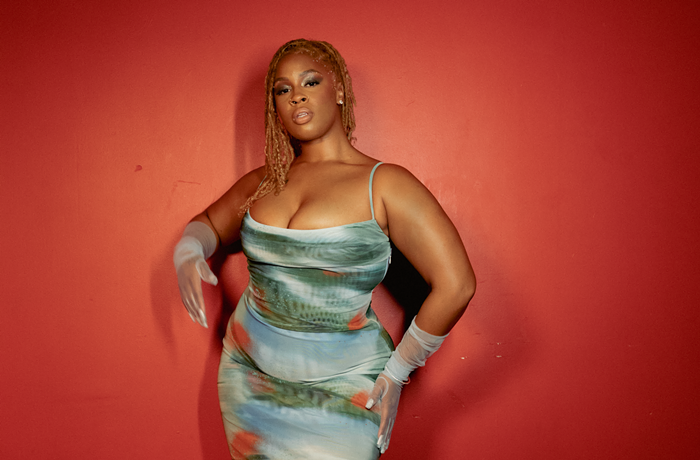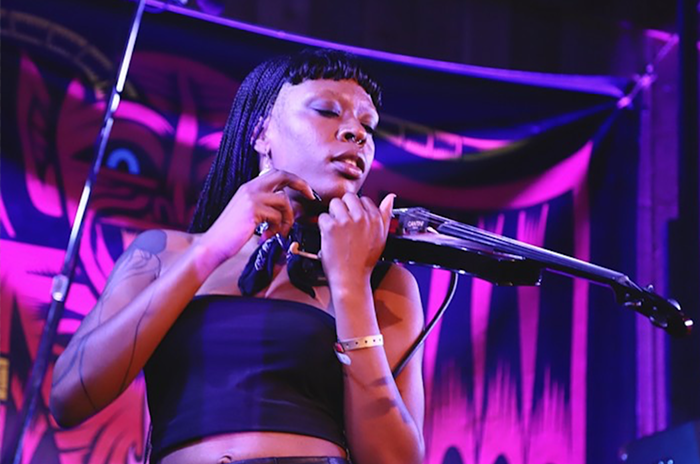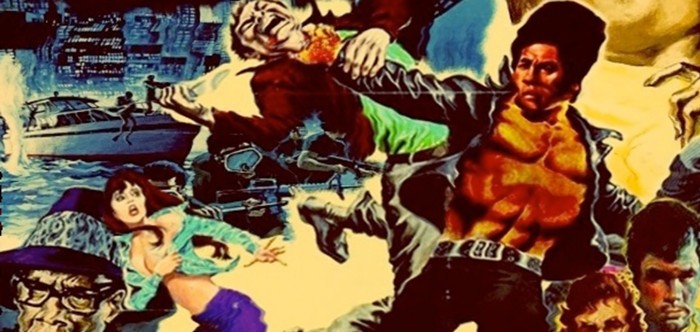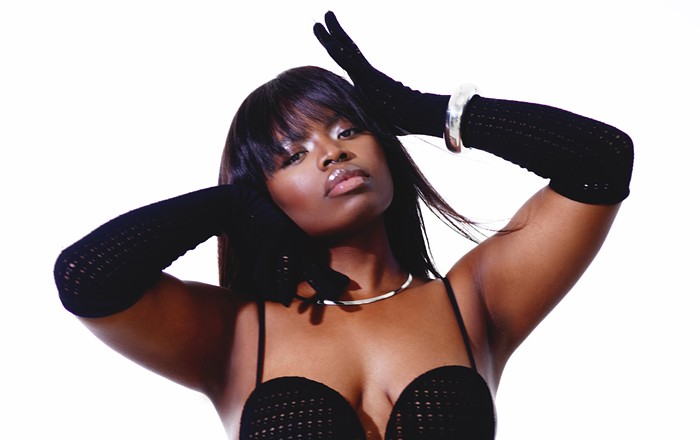I'm headed to a coffee shop downtown, where Arrington de Dionyso's art is hanging. The paintings, a series of colorful female nudes, double as cover art for his new solo album, I See Beyond the Black Sun. When I arrive, Dionyso will show me video of his collaboration with an interpretive dancer. But I'm running late, and I call to let him know as much. I get his voicemail, and am treated to a bass clarinet solo. It figures, really, as Dionyso, frontman of K Records mainstay Old Time Relijun, cultivates a life completely immersed in art.
The album, as Dionyso sees it, incorporates the painting, dance, and other aspects as integral parts of a greater whole. "The music wouldn't be complete without it," he says. Black Sun is a heady, challenging concept with which, without the use of words, Dionyso hopes to "envision and transmit a massive change in energy for the future." What's more, it sounds nothing like his band.
"An Old Time Religion show tends to be more outwardly athletic," he says. "The solo performances are not any less physical, but the physicality is really on an internal level."
Whether it's Tuvan throat singing, the bass clarinet, or yet-unnamed homemade instruments—which all share familiar deep drones and free-jazz runs—Dionyso is consistently and ferociously breathing out. "It's a step away from hyperventilating," he says. "It's a very lucid, aware kind of space." The exertion becomes trance-like.
"It's a very deep, profound experience," he adds. "To go there, it's a place of magic. I put myself in a very vulnerable position. Whatever you call it—you can define it in spiritual terms—I'm very open to receiving cosmic information." For this message to be relayed, listeners will need to share a bit of Dionyso's open mind and concentration.
Over the course of our conversation Dionyso kept returning to two words, "austerity" and "dignity," as if signposts. They represent for him, in these tumultuous times, necessary changes in energy and approach toward shaping our world politically, economically, and socially. And while, to the uninitiated listener, the wailing drone might appear free-wheeling, austerity and dignity also explain Dionyso's character and compositional style.
Improvisation is also an important aspect throughout, but each song contains touchstones or themes that are repeated every time. To perform without direct intention or diagram, he says, "is just spray-paint and color everywhere." Dionyso has been cultivating these aesthetics for some time. He considers his music well past the trial or demo stages. He relayed to me what he learned back in Olympia, from Calvin Johnson and others: If you do what you love long enough, eventually you're going to find someone to pay you for it.
Sure enough it came true, though Dionyso still works his tail off, touring six months of every year. In early 2009 he will spend two months touring Europe, where he'll also go into residency at a printing studio, hoping to emerge with a hand-pressed book.
At one point the 34-year-old referred to himself as somewhat aged as an artist, a position I take odds with. Indeed, the beck and call of the possibility of art in all its forms is impossible for Dionyso to resist. And with an engaging, sincere personality, a life of travel, discovery, and connections yet to be made, this seems like only the beginning.



















